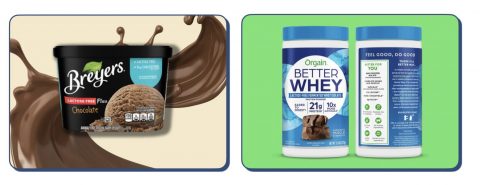🍦 Unilever released its first precision fermentation dairy product with an ice cream made with Perfect Day’s animal-free whey protein.
🥛 This follows last week’s launch by Nestlé of a whey protein supplement product. Now, most leading companies have launched at least one product. We’ll see how it works in a couple of months.

🧪 Both products use precision fermentation-made whey. The idea is quite simple on paper: you take a micro-organism (like a yeast or a fungi) and insert the DNA sequence of the desired protein (here, one of the dairy’s key proteins). Then, through fermentation, the micro-organism produces the desired protein. As shown in these products that extend an existing range of products, this protein can be used to substitute animal protein and to create real substitutes.
🇺🇸 First comment: both products have been launched in the US. While other areas have regulated precision, major companies prefer to launch on the American market. So, that’s not only a testimonial of the US strength in terms of regulation but a also proof that leading companies think that US consumers are the most willing to experiment with these new technologies.
📈 Second comment: the successive launch (while on secondary brands) of products by Nestlé and Unilever companies follows a series of experiments by these same companies. These must have been somehow successful in terms of sales and/or consumer reactions to lead to what we observe today.
🔮 We can expect to see more product launches using synthetic biology proteins in the months to come. Indeed, many have followed the same path of small-scale experiments, partnerships, and investments in the handful of precision fermentation startups.
That’s quite an exciting moment: after years of discussion, tastings, and experiments (and controversies), we will finally know what real consumers think about it, how they react, and basically if one of the greatest promises of FoodTech (finding a viable alternative to the environmentally damaging animal proteins) is bearing fruits.







